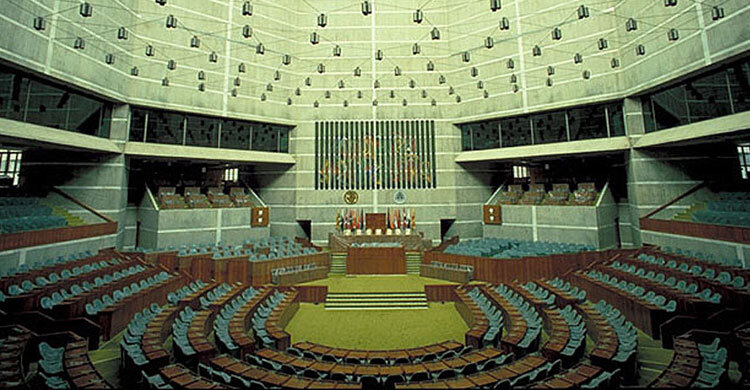Will the speaker's resignation trigger a constitutional crisis?

Shirin Sharmin Chaudhury served as Speaker of the Jatiya Sangsad from April 30, 2013, to September 2, 2024. After Sheikh Hasina's government fell on August 5 in the face of student-led uprising, President Mohammed Shaabuddin dissolved parliament the next day. Twenty-seven days later, Speaker Shirin Sharmin Chaudhury resigned, sparking debates about whether her departure has created a constitutional vacuum. Lawyers and university professors have weighed in on this issue, offering diverse opinions.
In a parliamentary democracy, the Speaker is the third-highest official after the President and Prime Minister. Even after the dissolution of parliament, the Speaker remains in office until a successor takes over. The Speaker is responsible for administering the oath to newly elected MPs and may also temporarily assume the role of Head of State in the President’s absence. Given the Speaker’s critical role, did Chaudhury’s resignation create a constitutional crisis?
A positive step?
Advocate Subrata Chowdhury, a senior Supreme Court lawyer, praised Chaudhury's resignation, calling it a morally correct decision. He pointed out that her continued service as Speaker under the now-defunct Sheikh Hasina government, which he referred to as "illegal," was ethically questionable. Subrata Chowdhury suggested that by stepping down, Chaudhury has distanced herself from the controversial regime, although he warned that legal action might still be pursued against her for her involvement with the government.
Subrata Chowdhury also dismissed concerns about a constitutional vacuum, noting that any necessary decisions could be made by the incoming parliament. He referenced the use of the "Doctrine of Necessity" during the country's liberation war, asserting that it could once again provide a solution.
The doctrine of necessity at play?
Barrister AM Mahbub Uddin Khokon, President of the Supreme Court Bar Association, echoed these sentiments, arguing that Chaudhury’s resignation would not lead to a constitutional crisis. He recounted how references to the Supreme Court had guided previous transitions, particularly during the formation of interim governments. Khokon emphasised that the state is not dependent on any one person and that constitutional mechanisms would continue to function despite Chaudhury’s departure.
As for the swearing-in of the next MPs, Khokon suggested that the "Doctrine of Necessity" would ensure that constitutional requirements are met.
No crisis, just questions
Human Rights and Peace for Bangladesh (HRPB) Chairman Manzil Morsed took a more skeptical view, questioning whether the constitution is still being upheld in practice. He argued that while the Speaker's resignation is not in itself a constitutional crisis, broader questions surrounding the rule of law remain unanswered. According to Morsed, with no functioning parliament, the role of the Speaker has lost its significance.
No immediate vacuum
Professor Borhan Uddin Khan from Dhaka University’s Law Department emphasised that Chaudhury’s resignation has not yet caused a constitutional vacuum. Under Article 76(2) of the Constitution, the Deputy Speaker assumes the Speaker's responsibilities in such cases. In this instance, Deputy Speaker Shamsul Haque Tuku is in jail, but Professor Khan asserted that this does not create a constitutional void. The real test will come when the next parliamentary elections are held. If necessary, the President could seek advice from the Supreme Court’s Appellate Division.
While Chaudhury’s resignation has raised questions, it has not led to a constitutional crisis. Legal experts agree that established procedures, including the Doctrine of Necessity, will ensure the country continues to function smoothly. However, the broader political situation in Bangladesh remains uncertain, and future developments could still bring new constitutional challenges.

